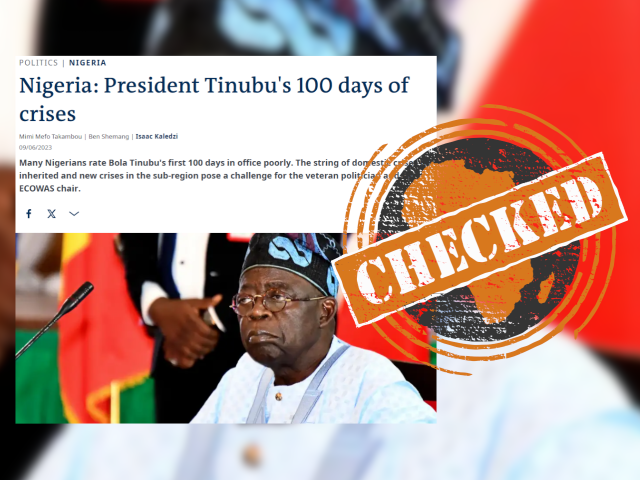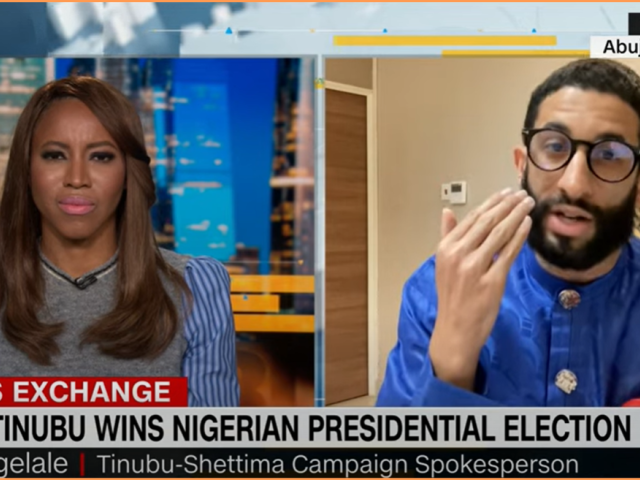IN SHORT: A video on Facebook claims that Nigeria’s president and members of the house of representatives have confirmed that the explosion in Ibadan, Oyo state was a terrorist attack. But that's not true.
On 16 January 2024, an explosion rocked the city of Ibadan in Oyo state, southwestern Nigeria, killing at least five people.
The next day a video posted on Facebook claimed that Nigeria’s president Bola Tinubu and some members of the house of representatives had declared the explosion a terrorist attack.
In the video, the narrator referenced two articles, claiming that they confirmed his earlier suspicions about the “dreaded” Boko Haram invasion of Oyo state.
He says: “They came out en masse to debunk it on social media platforms. But yesterday, the reverse was the case … The presidency, or should I say the president himself, Bola Ahmed Tinubu has come today, 17 January 2024, to tell you that it was a terrorist attack.”
The video was published to a public Facebook group with over 183,000 followers. It was also posted here, here and here and continues to circulate.
But was the explosion declared a terrorist attack? We checked.

No such pronouncement by the president or lawmakers
The first report quoted in the video was published in the Nation newspaper on 17 January. It highlighted the commitment of the Nigerian house of representatives to pass a law that would empower community policing groups to stop insecurity. Stanley Olajide was quoted as saying such a law was urgently needed, especially after events like the Ibadan explosion. He is the chair of the house committee on information communication technology.
In the article, Olajide said the explosion was the result of the illegal storage of explosives by illegal miners in a residential area.
The second referenced report was by the Vanguard newspaper and conveyed the president's concern about the explosion. Tinubu ordered the authorities to arrest the perpetrators and instructed the National Emergency Management Agency to collaborate with the Oyo state government to offer relief to the victims.
The reports did not say the incident was a terrorist attack, although the president and the house of representatives acknowledged that it was the result of human error.
Africa Check also found no media reports suggesting that the incident had been classified as a terrorist attack. If it were true, this would have made national headlines.
Republish our content for free
For publishers: what to do if your post is rated false
A fact-checker has rated your Facebook or Instagram post as “false”, “altered”, “partly false” or “missing context”. This could have serious consequences. What do you do?
Click on our guide for the steps you should follow.
Publishers guideAfrica Check teams up with Facebook
Africa Check is a partner in Meta's third-party fact-checking programme to help stop the spread of false information on social media.
The content we rate as “false” will be downgraded on Facebook and Instagram. This means fewer people will see it.
You can also help identify false information on Facebook. This guide explains how.




Add new comment